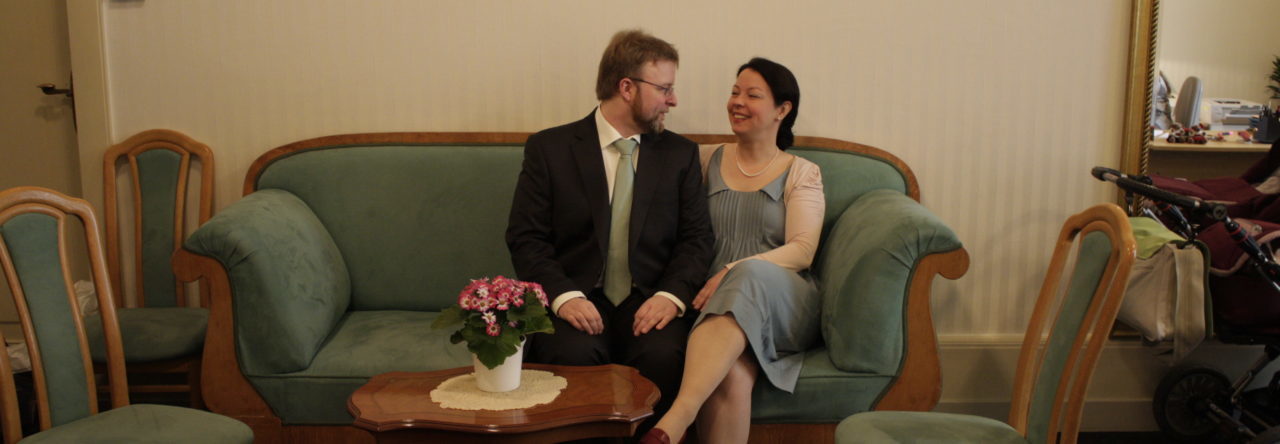In the comment section of a post in the Pharyngula science blog I found an entry where a man rather emphatically stated “If you think that Hitler was democratically elected you should buy a good history book“. I do have a good history book (in fact, I have a lot of good history books), so I feel rather comfortable when I say that, yes, Hitler had been elected democratically.
People who say that Hitler wasn’t really elected are usually germanophiles who search for excuses for crimes of the german people in the “Third Reich” (the argument is that a small undemocratic minority oppressed the good people of germany). But since Pharyngula is an american blog the case here might be a lot less sinister. The idea that Hitler wasn’t elected democratically is probably an allusion to the fact that he never got more than 50% of the votes (th e best result was some 44%). Americans, with their “the winner takes it all”-system tend to forget that you can win a german election without winning a majority.
The problem with this is that, without a majority, you have to form either a coalition with other parties, or form a minority goverment, or both, and in fact that was the problem that had plagued the Republic from the beginning. To put the results into perspective, the 43,9% for the NSDAP in the 1933 election was the best result any party had ever had in the Republic of Weimar from 1919 to 1933 (second best was 37,8% for the Social Democrats immediately after WWI). Governments were habitually formed without any democratic basis at all, so the result of the 1933 election might have looked like a step forward.
It turned out that there is yet another way to govern without a majority – in March 1933 the german parliament passed what is known as „Ermächtigungsgesetz“ (Gesetz zur Behebung der Not von Volk und Reich), a law that allowed the Nazi/Deutschnationale Coalition to govern without the consent of the parliament. That this was in fact an unconstitutional law is a mere technicality – it was passed with a vast majority that would have allowed to change the constitution in any case, so the parliament skipped a step.
So,since Hitler and the NSDAP had more votes than any other party during the Republic of Weimar and governed on the basis of a law that had been passed by the absolute majority of the parliament is seems reasonable to conclude that he was indeed democratically elected.
The more important point is that this question is not as such relevant. I’m not sure you can blame the german people for electing or not electing Hitler – after all he didn’t went into the election with the promise of perpetrating a holocaust, and his programme was not much more radical or antisemitic than that of some other parties. The pretty much collective crime of the german people was that they supported Hitler and his party even after they had started comitting unspeakable crimes and that a sizable fraction of the population supported him in comitting those crimes.The difficult thing about democracy is that majorities (pluralities) are sometimes wrong and that you have to decide if and when it is your moral duty to follow the wrong decisions many, or when to fight them.
[1] Dang, I can’t seem to find the post I’m refering to – no wonder, Prof. Myers writes more blog posts per month than I do in a year. In the post he was (again) adressing the silly contention that Darwinism inevitably results in genocide (actually it doesn’t).
[2] As a technicality “Hitler” wasn’t elected at all – the Republic of Weimar had a system of proportional representation where citizens elected parties, not persons. In practial terms the NSDAP was in some conservative parts of the electorate probably more a liabilty than an asset to Hitler. The german head of state Hindenburg appointed Hitler Chancellor only after he was reassured that the actual affairs of government would be run by the conservative Deutschnationale (German National) Party.
[3] Sautter, Udo „Deutsche Geschichte seit 1815: Daten, Fakten, Dokumente“ Tübingen 2004, p.166f
[4] Incidentally, counted in percentages the NSDAP had a better democratic legitimation than any party in the Federal Republic of Germany for at last 20 years – the best result in this time was 44,3% for the conservative „Union“ in the 1987 election and as the name suggests even this is a (permanent) coalition of two parties (CDU/CSU). For comparison, the elecorate in the Republic of Weimar was about 45 million voters, in the FRG it’s about 60 million.
[5] To the members of the Weimar parliament such a law looked propably less portentous than to a modern-day democrat; after all there had been already two previous „Ermächtigungsgesetze“ during the term of Friedrich Ebert .
[6] If anything it is strange that people elected a person who had already served a term for high treason.
[7] Yes, I know that phrase won’t make me any friends.
[8] The distinction between a majority and a plurality is much harder to make in german
